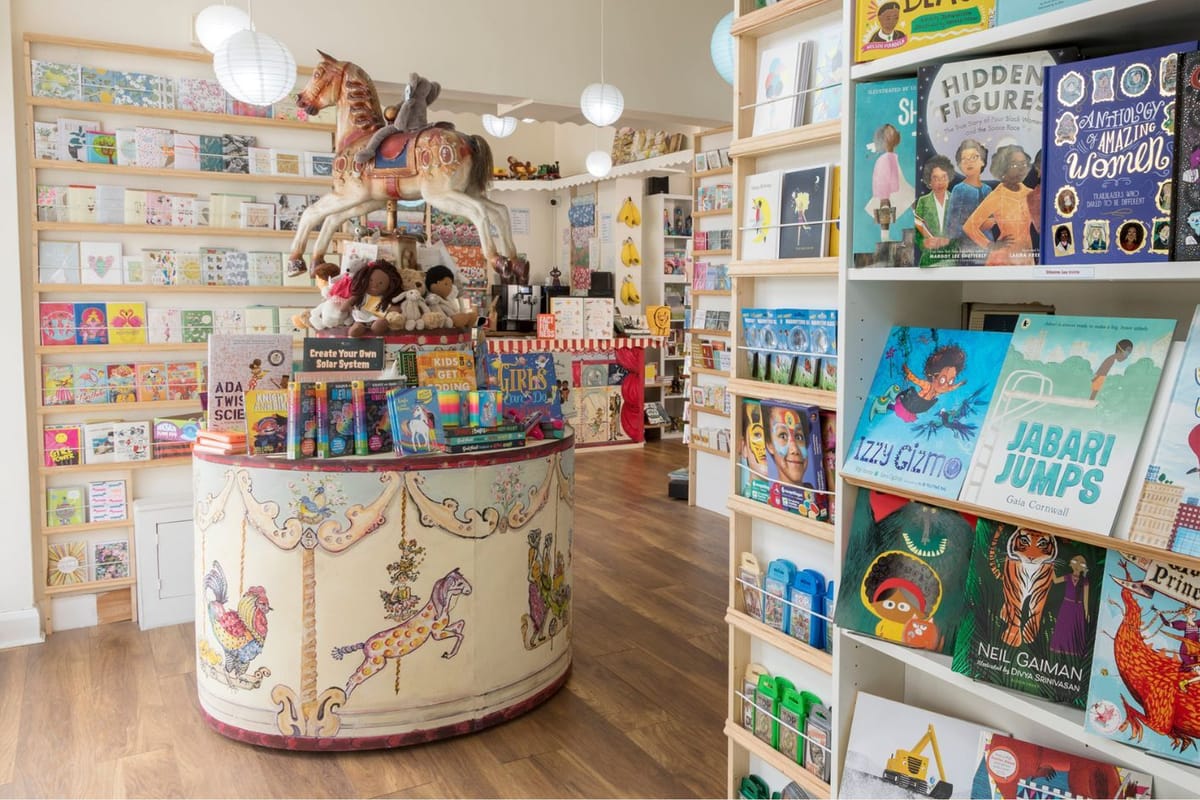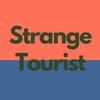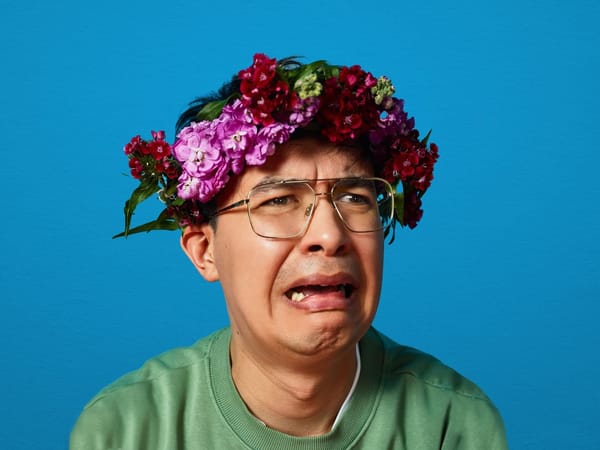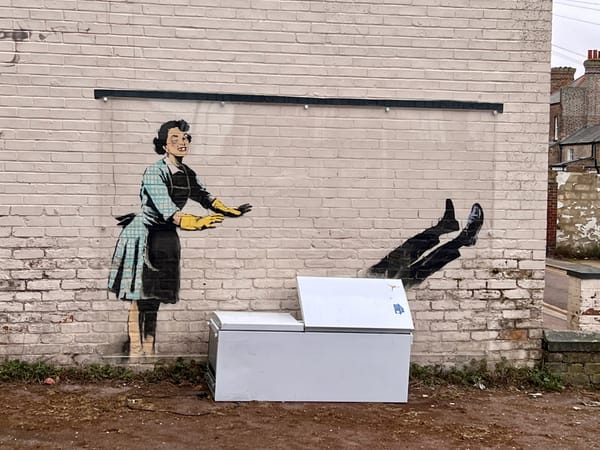Tamara Macfarlane on improving diversity in children’s books
Author and bookseller Tamara Macfarlane discusses her mission to reduce inequality in children’s books, how things are improving and what more needs to be done

Bookshop owner, author and educator Tamara Mcfarlane has spent two decades advocating for greater equality in children’s books. Through her chain of award-winning Moon Lane bookshops, various children’s book festivals and more, she has worked to promote books by a diverse range of authors and illustrators.
Tamara opened her first bookshop, Tales on Moon Lane in Herne Hill, London, while still working full-time as a primary school teacher. This expanded to other branches in Catford, Ramsgate and Whitstable, as well as a franchised shop in China. Also a children’s author herself, Tamara has written books including Dragon World and Underwater World for Dorling Kindersley, which explore myths and fables.
Having previously run a children's book festival at the Dulwich Picture Gallery in London for ten years, Tamara is preparing to launch the Children's Festival of Books Whitstable in May 2025. Ahead of that, she has programmed the children’s strand of this year’s Margate Bookie literary festival, which takes place at the Turner Contemporary on October 5-6.
We spoke to Tamara about the need to improve diversity in children’s books, how this can be achieved, the Margate Bookie programme, and her favourite children’s books.
Your work focuses on addressing inequality in children's books. What are the key issues?
Children's books tend to reflect the publishing industry rather than the entire UK population. The publishing industry tends to be very middle class, white, and come from a very similar background, which means that there are huge amounts of the population that aren't represented in our children's books.
The Centre for Literacy and Primary Education have done a lot of research into minority ethnic representation in children's books and the gap between our population and representation in children's books.
It has been improving since they've been tracking that data. When they started in 2017, 13% of our children's UK population was minority ethnic children's population and only 1% of the main characters in any children's books were from a minority ethnic background.
Then there are the issues around the way that girls were represented, there’s the lack of representation around neurodiversity and disability, and issues around gender and the various ways of being male and various ways of being female and everything else.
At the moment, I'm really focused on looking into the lack of lower socioeconomic representation.
How did you get into this area?
I started 20 years ago. I was a primary school teacher in London and I just became absolutely furious about the lack of representation in our children's books and what that meant in terms of the lack of respect for well over half my class. Both in terms of them not being able to see themselves in those books but also for all of the children in the class not being able to see one another represented.
As an independent bookseller what issues do you come up against from that perspective and how easy is it to get the books that you want on the shelves?
It's getting easier. Luckily now, it is becoming less of a problem to find really well-written books that are inclusive. There's a long way to go in terms of all areas of representation though.
The area that is still really lacking is nuanced lower socioeconomic experiences in any kind of book. Even trying to find a picture book with flats in - there's probably three that I could name and that's not even a lower socioeconomic experience anymore, that's general experience.
There is still certainly - particularly within picture books - this idea of giving a model of what a childhood should look like. My fear is that that is really reinforcing a very narrow concept of what it means to be normal within our children's literature.
In places like Thanet where there's a real mixture of disadvantage and gentrification, how might books play a part in bridging that gap or address some of the social issues?
In the UK, bookshops are very challenging places for a lot of people to enter. It's one of the things that we're trying to address. We have two days a week dedicated to inviting all of the local schools into the bookshop for free storytelling sessions.
Walking into a bookshop can be very threatening as a parent who finds literacy a problem. So by bringing the children into the shop not as a sales space but as somewhere to celebrate books and the pleasure around reading, it helps to break down that barrier.
When the children feel comfortable in the space, they will bring their parents back. We've noticed a massive difference in our customer base following having all of the local classes into the shop in that way. That's been consistent across all of the shops that we've opened.
In terms of crossing over the gaps and children's books being helpful in that way, we need more diverse socioeconomic representation of experiences that aren't issue-ised. Where it's not, ‘Oh, that poor, poor person,’ it's about celebrating values at different places within our society. Then we can start to have really interesting conversations that are authentically empathetic across all of our children being treated equally in our children's books.
Is it difficult to inspire a love of books and reading in kids who come from a home where there are very few books?
If books aren't really celebrated at home, that is an issue but it's certainly not insurmountable.
Peer recommendation is one of the things that a lot of schools are really good at. That again is about taking away a barrier where it's always an adult recommending a book to a child or seeing an adult reading. So that might be encouraging children to bring in books to share. Then teachers are able to identify those children that may not have books at home and put in that extra time and effort, where possible, to find a book for that child that engages with their interests.
Often I talk to parents about finding their child’s point of interest, whether that's football or food or whatever the child may be really, really into so you can help find a way into books through that.
I’m a children's author as well, and I do my events at schools and festivals with the children's stand-up comedian Gilbert Giggles. The children that I want to reach are the ones that aren't already reading and need to see where the pleasure and the fun and the joy and the adventure is in those books. We can bring that alive in a performance and relate that back to the book.
Tell us a bit about what you've got planned for the Margate Bookie children's programme.
We've got a really exciting line-up of authors and illustrators who are all from Thanet or Thanet adjacent.
We've got the brilliant Gary Parsons with The Dinosaur Who Pooped a Superhero doing a draw along. I'm doing a dragon creation workshop on the Saturday and we've got Tom Dellahunt with his book The Wandering Lamb, which is about having ADHD and the importance of accepting yourself for who you are, which is really lovely.
We've also got some lovely making and creating with Esther Coombs and a number of other activity-based author and illustrator events.
Finally, what's one of your favourite children's books?
Something that's come out recently is Gordon, the Meanest Goose on Earth. It’s about a goose who's incredibly mean. But there's a lovely pig in there who refuses to respond to his meanness and just meets it each time with sort of quiet kindness. In the end, the goose realises that he has mistaken bravery for meanness and that they're two very distinct things.
There's a real exploration of the impact of meanness done with so much humour that you can't stop reading it. I was genuinely surprised - having read so many children’s books over the last 20 years - to see a theme that I haven't come across dealt with in that way before.
In terms of ones that I've loved over my life, there's a beautiful book called Sylvester and the Magic Pebble by William Stig. I recently realised that it’s actually about a donkey who can't communicate with his parents because he's been turned into a rock for various reasons.
I re-read the book and it really related to how I felt as a child. I always felt as though I was miscommunicating with the world - everybody understood rules that I didn't really understand.
Since being diagnosed with ADHD as an adult, it now makes a lot of sense.
A lot of people that I've spoken to have got children's books where now, if they're asked to reflect on them, can understand why there was such a strong link to that one that they wanted to read it again and again.
The Children’s Bookie section of Margate Bookie takes place at the Turner Contemporary on October 5-6. You can also find out more about Tamara and all of her projects on the Moon Lane website.




